|
|
|
Editor's note
|
|
Locavorism is becoming big business as more Americans across the country embrace local foods. Farmers markets have exploded, local food sales are soaring, and even schools are sourcing more of their cafeteria fare from farms rather than national suppliers. At the heart of this trend are the “locavores,” a type of foodie who defies stereotypes. University of Oregon marketing professors Joshua T. Beck and Brandon Reich studied the ways and rituals of the urban locavore. Here’s what they learned.
Donors like Craig Newmark, the founder of Craigslist, make headlines with their big gifts aimed at shoring up news outlets and journalism schools. But the breadth and depth of philanthropic support for nonprofit media is a much bigger story, explains Charles Lewis, a pioneer of nonprofit media who is now an American University professor.
One of the lesser-noticed elements of the new federal indictments announced yesterday against 12 Russian government agents included allegations that some of them hacked into state and county government election records in at least three states. As the midterm congressional elections approach, along with countless other state and local races, we’ve collected perspectives from various authors for The Conversation about what could help prevent future spying and meddling in U.S. election systems.
|
Bryan Keogh
Economics + Business Editor
|

|
|
Top stories
|
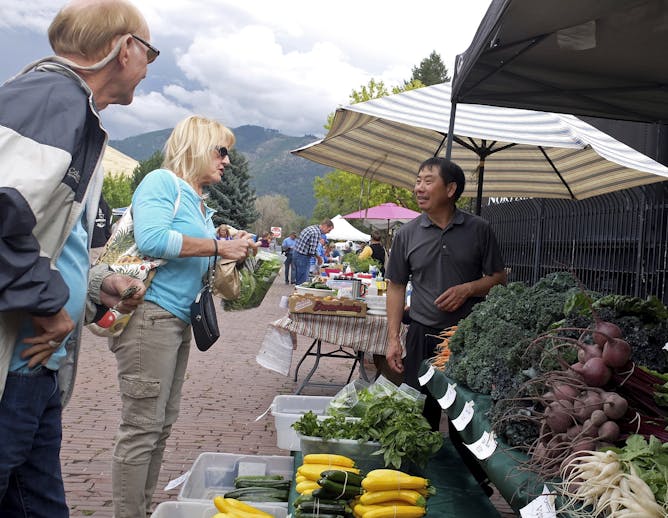
Farmers markets have soared in popularity across the country, such as this one in Missoula, Montana.
Reuters/Ellen Wulfhorst
Joshua T. Beck, University of Oregon; Brandon Reich, University of Oregon
Several studies on locavores – people who go out of their way to buy foods and other products from local sources – explore the beliefs and values that makes them tick.
|
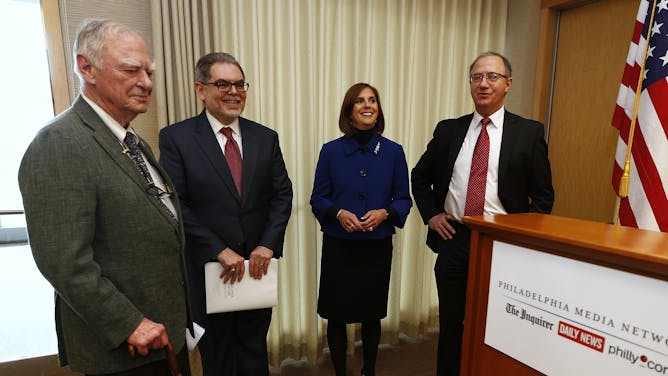
H.F. ‘Gerry’ Lenfest, left, donated tens of millions of dollars to sustain Philadelphia’s newspapers.
AP Photo/Rich Schultz
Charles Lewis, American University School of Communication
Without credible news and information, a healthy democracy is not possible.
|

shutterstock.
Jeff Inglis, The Conversation
Russian government agents allegedly penetrated US state and county election databases. Scholars of election security offer insight and recommendations about what to do now.
|
Ethics + Religion
|
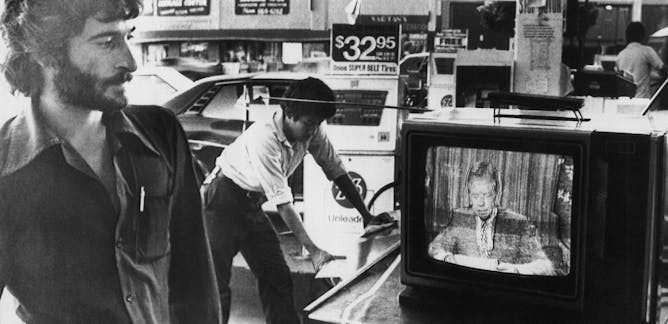
David Swartz, Asbury University
At at time of rising hatred and nationalism, Jimmy Carter's speech -- a sermon that cautioned against excess, offers a counterexample.
| |

Andrew Alan Johnson, Princeton University
A scholar, who has conducted research on the Thai caves in which 12 children were recently trapped, explains their power and appeal, including the rituals and myth surrounding these sacred sites.
|
|
|
Science + Technology
|
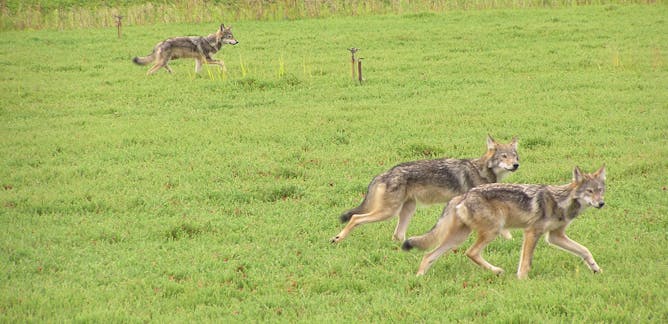
Angela Dassow, Carthage College
Tracking wild animals can provide lots of valuable data. New research suggests audio recordings of wild wolves can replace the typical radio collars, which can be expensive and intrusive.
| |

Doug Cowen, Pennsylvania State University; Azadeh Keivani, Columbia University; Derek Fox, Pennsylvania State University
A detector buried under more than a mile of ice in Antarctica has detected a high-energy subatomic neutrino and traced it to its origin, a blazar – a gargantuan black hole more than a billion times more massive than the sun.
|
|
|
Environment + Energy
|

Derek Hoff, University of Utah
Fifty years ago biologist Paul Ehrlich published 'The Population Bomb,' an apocalyptic warning that overcrowding would lead to wars and famine. Here's what the book got right and wrong.
| |
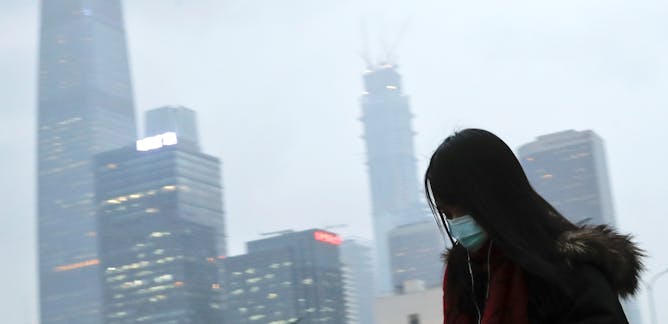
James A. Holtkamp, University of Utah
Just like with Cold War-era red-baiting, there's an apparent effort to discredit and undermine critics of the US government.
|
|
|
Health + Medicine
|

Matthew Motta, University of Pennsylvania; Steven Sylvester, Utah Valley University; Timothy Callaghan, Texas A&M University
Vaccines have long been considered safe, but many people still believe they are not. A new study shows that people who think they know more than medical experts are more likely to believe that vaccine are not safe.
| |

William Atchison, Michigan State University
Novichok are a set of molecules that are some of the most deadly nerve agents ever developed. They are almost impossible to detect and clean up.
|
|
|
Politics + Society
|
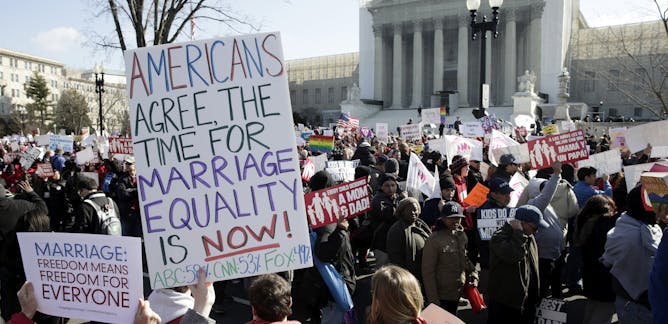
Philippa Strum, City University of New York
Americans have rediscovered the Supreme Court, as they do periodically when it's at the center of controversy. With a president who attacks the legitimacy of courts, will their attention be benign?
| |
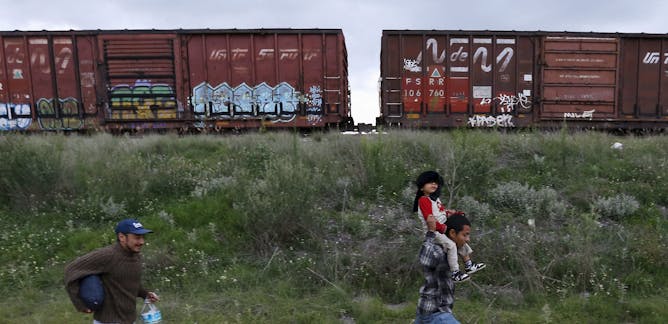
Julio Ernesto Acuna Garcia, Universidad San Fracisco de Quito (Ecuador)
Central American youth are 10 times more likely to be murdered than children in the US. Child homicides in Guatemala, Honduras and El Salvador are rising even as other violence declines.
|
|
|
Economics + Business
|

Amanda Lotz, University of Michigan
A scholar of the media business tries to make sense of the flurry of merger news lately, and why the contested tie-up between AT&T and Time Warner will profoundly reshape the American media landscape.
| |
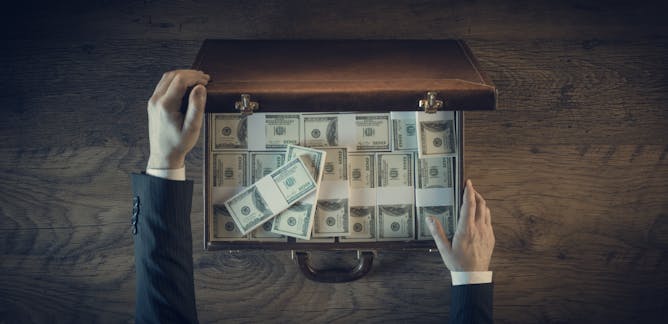
Brian Mittendorf, The Ohio State University
When organizations dedicated to doing good make money their top priority, they get into trouble.
|
|
|
Education
|

Jilana Boston, New York University; Andrei Cimpian, New York University
Stereotypes may discourage girls from pursuing STEM careers, but research suggests several ways that parents and teachers can turn things around.
| |

Stella M Flores, New York University
The Trump administration recently announced it will reverse several policy memos outlining how colleges and universities can use race as a factor in admissions. Will diversity on campus take a hit?
|
|
|
| |
| |
| |
| |
| |
| |
|
|
|
|
|
|
|